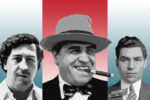Maybe you’ve eaten too fast. Or perhaps you’ve had a carbonated beverage and it’s fizzing away in your stomach. For whatever reason, you suddenly experience a gulping sensation as you take a breath in. Congratulations, you have the hiccups.

Hiccups are a result of irritation of the diaphragmatic muscle that separates your chest from your abdomen, and is part of what makes your lungs expand. As you inhale, the diaphragm opens up, stretching across your chest, then relaxes as you exhale. When irritated, the muscle goes into sudden spasms, or hiccups, which usually last only a few minutes. Any session lasting 24 hours or more, should be investigated by a doctor, as you may have an underlying condition that needs attention.
How do you get rid of hiccups? Everybody has a cure, whether it’s a good scare, swallowing a spoon of sugar, or holding your nose while sipping water. But do any of these cures work? Oddly enough, scientists say that some will serve to interrupt the spasm of the muscle, but not in all people. So what works for one, may not work for the other.
A man named Charles Osborne had the hiccups for approximately sixty-nine years.
Take poor Charles Osborne, for instance. Born in 1894, Osborne was 28-years old when he started hauling around a hog to see how big it was (likely straining the diaphragm in the process) Then he started to hiccup. And he didn’t stop for 69 years. At first the spasms hit at a rate of 40 times a minute. Later in life they had tapered off to 20 a minute, during which Osborne lamented the dangers of losing his false teeth. But they had little significant effect. Osborne married twice, fathered eight children, and died at the age of 97, one year after the hiccups mysteriously stopped.


